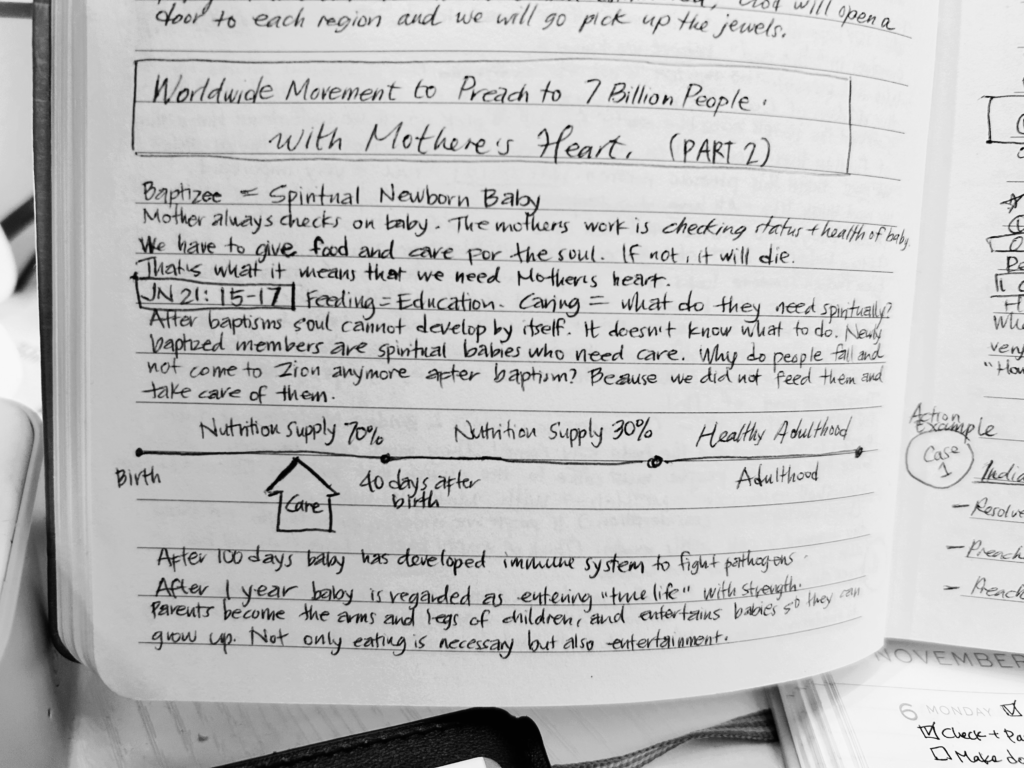The WMSCOG had a number of metaphors for the development path expected of members in the church. One compared newly baptized members to spiritual newborn babies.
Just as a mother would often check on her baby, they taught, newly baptized people need to be constantly checked on and “fed” with education and care. A newly baptized soul can’t develop by itself, they taught. It doesn’t know what to do.
“Babies are very hungry in the first 100 days, eating 8-12 times a day,” I wrote in my notes from an education I attended in Korea. “But in adulthood we eat 3 times a day.”
The “spiritual babies” metaphor was used to validate suffocating new members with constant surveillance and education. Countermeasures to “slander” were considered “vaccines” that needed to be administered at regular intervals.
The treatment of fully grown adults as infants is referred to as “infantilization,” which researchers have found can have detrimental effects on a person’s mental health and autonomy.
One study refers to infantilization as a “form of psychological mistreatment” that can lead to “negative influences on behavior, well-being, self-identity, relationship formation, and social interaction.”1The Causes And Symptoms Of Infantilization, BetterHelp, https://www.betterhelp.com/advice/general/the-causes-and-symptoms-of-infantilization/ (Accessed Nov. 9, 2023).
Researchers have found links between narcissistic relationships and infantilization, which perpetuates the codependency that narcissistic abusers thrive on.2The Infantilization Tactic: Parent-Adult Child Codependency and Narcissistic Abuse Cues, Better Being Main Line, https://betterbeingmainline.com/the-infantilization-tactic-parent-adult-child-codependency-and-narcissistic-abuse-cues/ (Accessed Nov. 9, 2023).
Stay tuned for the next post, which will go into some of the red flags indicating examples of infantilization and how those tactics are used in the WMSCOG.
Below are photos of my notes from the education in Korea on spiritual infancy:


